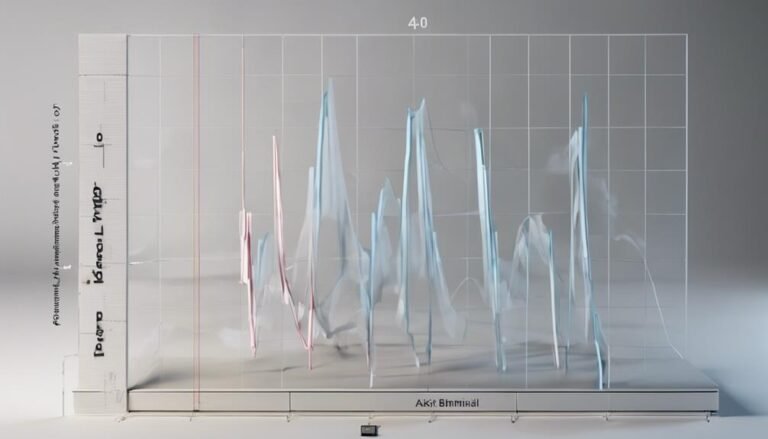Futures Contracts: Mechanics, Types, and Trading Strategies
Futures contracts intricately guide parties through specific commodities, prices, and times, supported by margin requirements and expiration dates governing settlement. These contracts span agricultural, energy, metal, currency, and financial sectors, enabling price hedging and future transaction planning. Strategic trading involves dynamic market comprehension, risk management prioritization, stop-loss orders, and analysis deployment for effective entry and exit decision-making. Settlement unfolds through cash or physical delivery, ensuring margin sufficiency for closed or rolled positions. Bond, index, and energy futures, alongside markets like the International Petroleum Exchange, offer diverse trading opportunities and risk management solutions. Understanding these intricacies is key to maneuvering the complexities of futures contracts.
Key Takeaways
- Futures contracts are legally binding agreements with specific commodity, price, and time parameters.
- Types of futures contracts include agricultural, energy, metal, currency, and financial categories.
- Trading strategies involve market understanding, risk management, stop-loss orders, and analysis for effective entry and exit points.
- Settlement can be through cash or physical delivery, with margin requirements to ensure obligations are met.
- Specific futures markets like bond, index, and energy derivatives cater to various needs such as interest rate hedging and market exposure.
Mechanics of Futures Contracts
Futures contracts represent a legally binding agreement between two parties to buy or sell a specific quantity of a commodity at a predetermined price and time in the future. These contracts have margin requirements to guarantee both parties can meet their obligations.
Margin is the minimum amount of funds required to be deposited by the buyer and seller to cover potential losses. Expiration dates are essential in futures contracts as they dictate when the contract must be settled.
If the contract isn't closed before the expiration date, it could result in physical delivery of the underlying commodity. Understanding margin requirements and expiration dates is vital for participants in futures markets to manage risk effectively and ensure smooth contract settlements.
Types of Futures Contracts
In the domain of financial markets, various categories of contracts cater to different commodities and assets, offering participants a diverse array of opportunities for hedging and speculation. Types of futures contracts include agricultural futures (grain, cotton, livestock), energy futures (crude oil, natural gas), metal futures (gold, steel, copper), currency futures (exchange rates, interest rates), and financial futures (S&P 500, Treasury bonds).
These contracts play an essential role in pricing dynamics and risk management strategies. They allow market participants to hedge against price fluctuations and manage risk exposure effectively. By utilizing futures contracts, individuals and organizations can lock in prices for future transactions, enhancing their risk management practices while also providing avenues for potential profit through speculation.
Trading Strategies for Futures
Utilizing effective trading strategies in futures markets requires a keen understanding of market dynamics and risk management principles. Traders must prioritize risk management to safeguard capital and optimize profit potential. Strategies like stop-loss orders, diversification, and position sizing are essential tools in mitigating potential losses.
Additionally, utilizing technical analysis, such as trend-following indicators or chart patterns, can help identify entry and exit points. Fundamental analysis, including supply and demand factors or geopolitical events, can also inform trading decisions.
Settlement of Futures Contracts
Effective settlement processes are essential in futures contracts trading to guarantee timely and accurate completion of transactions. Settlement of futures contracts can occur through cash settlement or physical delivery.
Cash settlement involves the transfer of cash based on the contract's value at expiration, while physical delivery requires the actual delivery of the underlying asset. Margin requirements play a vital role in the settlement process, ensuring that traders have sufficient funds to cover potential losses.
As contracts near expiration, traders must either close their positions or roll them over to a future contract to avoid physical delivery. Understanding the settlement options and margin obligations is critical for successful futures trading strategies.
Specific Futures Contracts and Markets
To explore specific futures contracts and markets further, delving into the intricacies of bond futures, index futures, and energy derivatives provides valuable insights into various trading strategies and risk management techniques in the financial and commodities markets.
Bond futures allow speculating on interest rate movements and hedging against interest rate risk, while index futures provide exposure to the broader market and hedge against market volatility.
Energy derivatives enable speculation on energy prices and effective risk management in the energy market. The International Petroleum Exchange (IPE), now part of ICE Futures Europe, is a London-based exchange specializing in energy-related commodities, contributing to energy trading benchmarks.
These specific futures contracts play an essential role in managing risk and creating opportunities in the dynamic world of futures trading.
Conclusion
To sum up, futures contracts offer a fascinating glimpse into the world of financial markets, providing a mechanism for managing risk and speculation.
The mechanics, types, and trading strategies of these contracts showcase their versatility and importance in various industries.
From agricultural to financial futures, the settlement processes and specific markets highlight the dynamic nature of futures trading.
Overall, futures contracts present a profitable pathway for investors seeking stability and profit opportunities.







